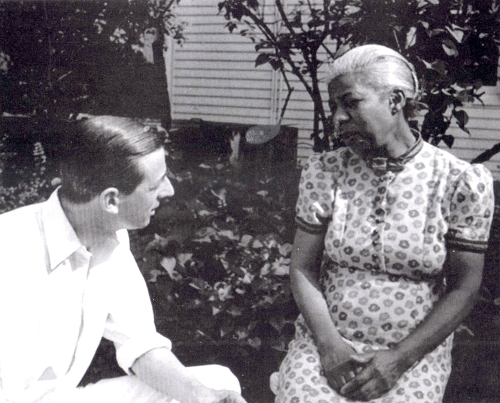A great mystery surrounded I Hear America Singing, the 13-part series that Alistair Cooke produced in 1938: How had the BBC managed to borrow recordings from the Library of Congress when no other broadcaster was allowed access to them?
The circumstances were extraordinary. First, Cooke wrote an eloquent and charming letter to Herbert Putnam, the Librarian of Congress. “When I first became interested in American folk songs,” he wrote, “I had no idea so little had been done in recording, and how desperately hard it is for an amateur to get within earshot of the music he is interested in and excited about….I found that the Library, and only the Library, has recorded a score or more of the songs which can make my series possible.”
Moved by Cooke’s letter and the goal of the series, Putnam agreed to grant one-time rights with notable restrictions: the BBC would send the Library any copies that were made when it returned the recordings; the series would be broadcast live, and only once; and no recordings of the series itself would be preserved. As a result of this arrangement, many recordings were broadcast that had never before been heard by anyone outside the Library.
This according to “Alistair Cooke: A radio and TV icon in the Archive of folk culture” by Stephen D. Winick (Folklife Center news XXVII/1–2 [winter/spring 2005] pp. 6–8). Above, Cooke interviews an unknown singer for the series in 1938. Below, Vera Hall (1902–64) sings Trouble so hard, recorded by John Lomax for the Library of Congress in the 1930s.
Related articles
- National jukebox (bibliolore.org)
- Pete Seeger, filmmaker (bibliolore.org)
- Lead Belly and the folklorists (bibliolore.org)




Pingback: Kumbaya: A song’s evolution | Bibliolore
So much of our culture has been lost due to stupid bureaucratic and corporate decisions.
To whose benefit?
A.